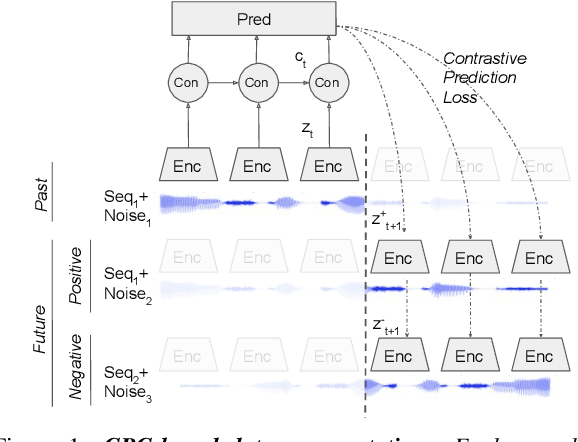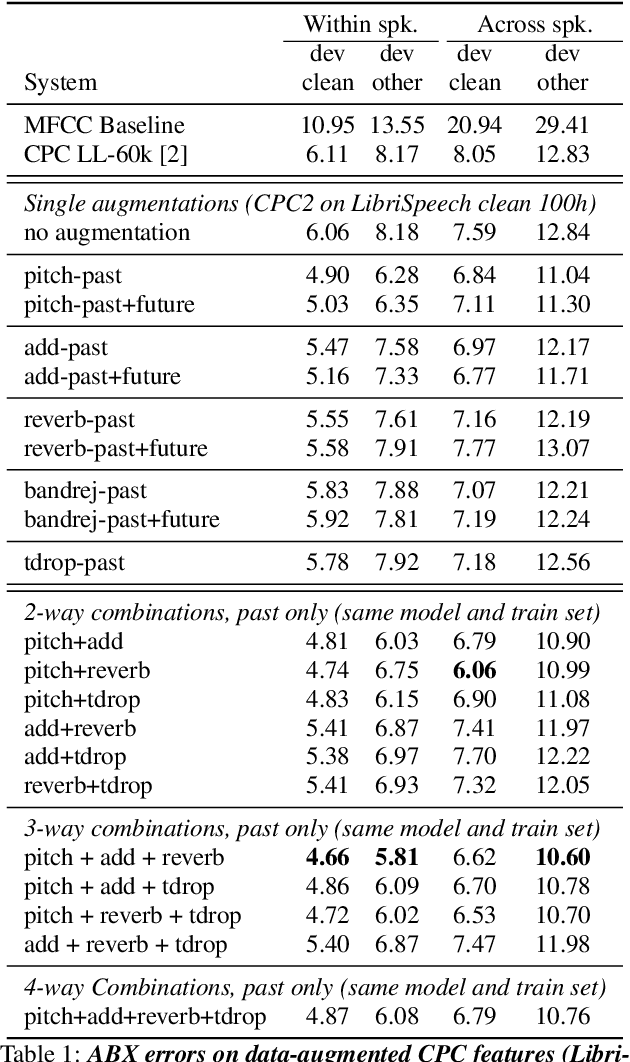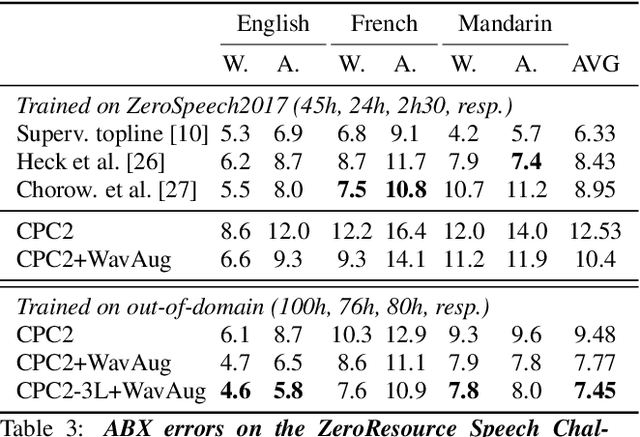Data Augmenting Contrastive Learning of Speech Representations in the Time Domain
Paper and Code
Jul 02, 2020



Contrastive Predictive Coding (CPC), based on predicting future segments of speech based on past segments is emerging as a powerful algorithm for representation learning of speech signal. However, it still under-performs other methods on unsupervised evaluation benchmarks. Here, we introduce WavAugment, a time-domain data augmentation library and find that applying augmentation in the past is generally more efficient and yields better performances than other methods. We find that a combination of pitch modification, additive noise and reverberation substantially increase the performance of CPC (relative improvement of 18-22%), beating the reference Libri-light results with 600 times less data. Using an out-of-domain dataset, time-domain data augmentation can push CPC to be on par with the state of the art on the Zero Speech Benchmark 2017. We also show that time-domain data augmentation consistently improves downstream limited-supervision phoneme classification tasks by a factor of 12-15% relative.
 Add to Chrome
Add to Chrome Add to Firefox
Add to Firefox Add to Edge
Add to Edge